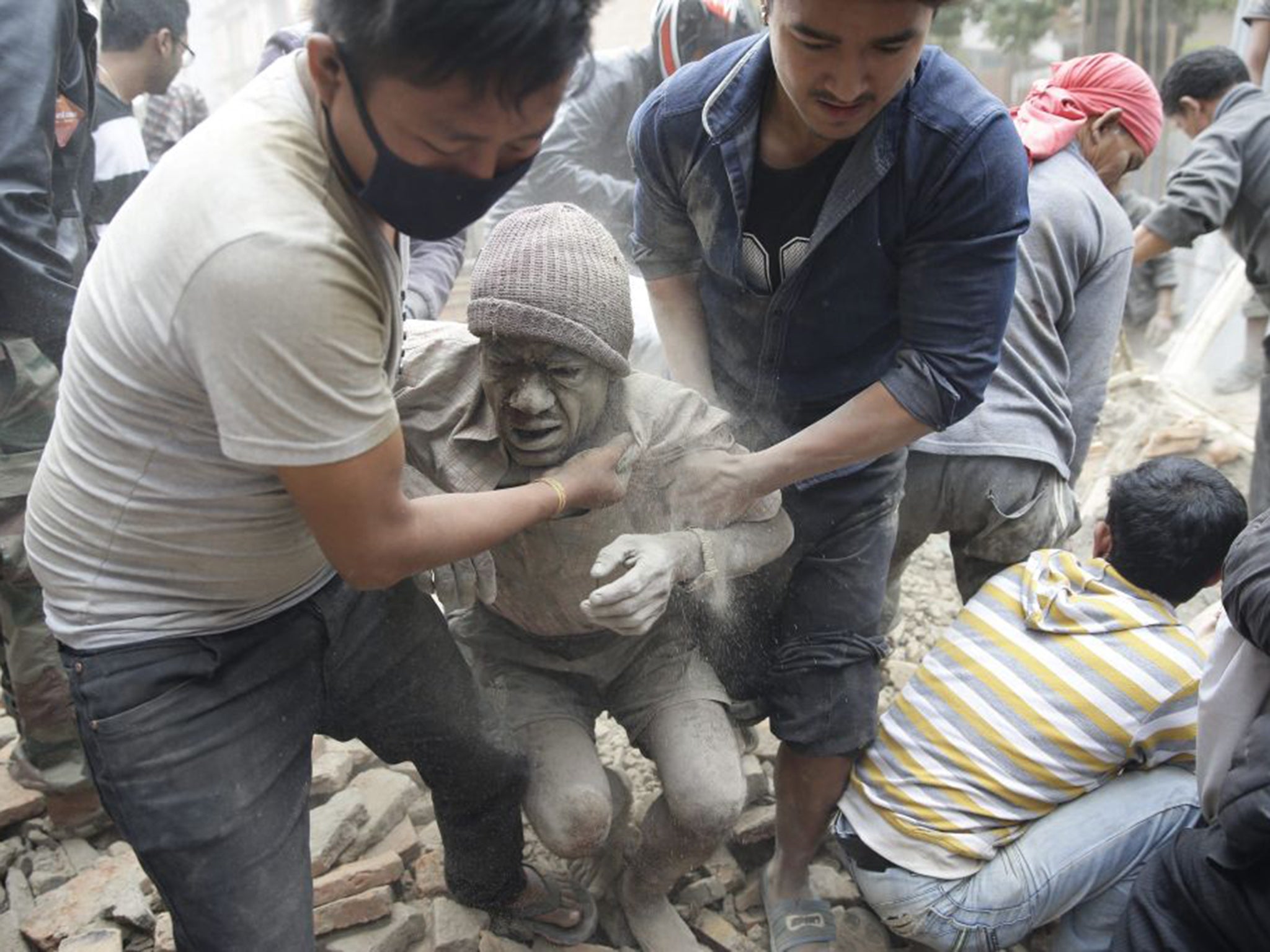Nepal earthquakes: Work begins on homes shattered by the natural disaster
Kathmandu has said it needs to train 50,000 people to aid the reconstruction effort

Nepal is finally set to start repairs and reconstruction for nearly a million homes damaged by last year’s deadly earthquakes – nearly nine months after the disaster left hundreds of thousands homeless.
Tremors last April and May killed 9,000 people, injured more than 22,000 and damaged or destroyed more than 900,000 houses, forcing many to brave freezing temperatures living in temporary shelters made from tarpaulin and corrugated iron.
Unicef estimates that more than 200,000 families affected by the quakes are still living in temporary shelters at an altitude above 1,500 metres (4,920ft), where harsh winter conditions will continue through February.
“We realise that the victims are very much in trouble. We’ll start the reconstruction work from 16 January,” Sushil Gyewali, chief of the National Reconstruction Authority, told reporters.
Officials will send 1,500 engineers to villages in all the 40 affected districts to take detailed damage surveys. They will train technicians to build safer houses.
The agency was launched in September but political squabbling has delayed the deployment of $4.1bn (£2.8bn) pledged by foreign donors for reconstruction. The adoption of a new constitution also sparked protests by ethnic Madhesi groups, who blocked key trade crossings with India, causing severe fuel shortages. Aid agencies say the shortages have also constrained efforts to transport blankets, clothing and other essential relief materials to earthquake survivors in mountainous areas.
Last month, new laws were finally approved to allow the government to form the agency and appoint Mr Gyewali.
According to local media reports, the delay has been cited as a potential factor for more than a dozen deaths since the onset of winter, mostly of people over 65.
Kathmandu has said it needs to train 50,000 people to aid the reconstruction effort, and has pledged up to £1,400 for each home destroyed by the tremors. Mr Gyewali added that his agency would offer up to £10,350 in soft loans to each affected household for reconstruction.
Reuters
Join our commenting forum
Join thought-provoking conversations, follow other Independent readers and see their replies
Comments
Bookmark popover
Removed from bookmarks